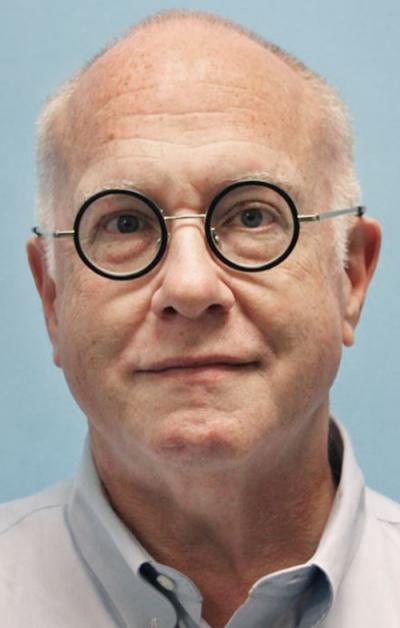

 Many of my friends in the civil-liberties and Internet-law communities have been criticizing the Internet Society's agreement to sell the Public Interest Registry, which administers the .ORG top-level domain. I'm a free-speech guy, so I support their right to raise all these criticisms. But they often ask me directly – knowing that my track record as an Internet civil-libertarian is longer than most – why as a member of the Internet Society (a.k.a. ISOC) board I decided to join the board's unanimous approval of the deal. more
Many of my friends in the civil-liberties and Internet-law communities have been criticizing the Internet Society's agreement to sell the Public Interest Registry, which administers the .ORG top-level domain. I'm a free-speech guy, so I support their right to raise all these criticisms. But they often ask me directly – knowing that my track record as an Internet civil-libertarian is longer than most – why as a member of the Internet Society (a.k.a. ISOC) board I decided to join the board's unanimous approval of the deal. more
 I was on the front lines of the SOPA wars, because SOPA touched on two matters of strong personal and professional importance for me: protecting the Internet infrastructure, and protecting the economy from Internet related crime. I've continued to study this field and advise industry participants in the years since then. The 2017-02-20 paper by Annemarie Bridy entitled Notice and Takedown in the Domain Name System: ICANN's Ambivalent Drift into Online Content Regulation deserves an answer, which I shall attempt here. more
I was on the front lines of the SOPA wars, because SOPA touched on two matters of strong personal and professional importance for me: protecting the Internet infrastructure, and protecting the economy from Internet related crime. I've continued to study this field and advise industry participants in the years since then. The 2017-02-20 paper by Annemarie Bridy entitled Notice and Takedown in the Domain Name System: ICANN's Ambivalent Drift into Online Content Regulation deserves an answer, which I shall attempt here. more
 When .org prices rise, who suffers – nonprofits or speculators? Will Ethos Capital raise prices more aggressively than ISOC would? Vint Cerf attributed concerns about higher prices to speculators: "Of course, companies that hold domain names in the tens of thousands for speculative purposes might find such increases more troubling, but I don't have much sympathy for that business model in the context of the organizations the .org brand is intended to serve." more
When .org prices rise, who suffers – nonprofits or speculators? Will Ethos Capital raise prices more aggressively than ISOC would? Vint Cerf attributed concerns about higher prices to speculators: "Of course, companies that hold domain names in the tens of thousands for speculative purposes might find such increases more troubling, but I don't have much sympathy for that business model in the context of the organizations the .org brand is intended to serve." more
 As we embark on a new year and decade, it seemed worthwhile to take a peek at the principal forums for global 5G industry technical collaboration and do a quick assessment of what is occurring and who are the "leaders." The leadership dimension is especially relevant in Washington these days – which is suffering from a peculiar 5G dementia. As the year ended, there were no less than 35 current 5G related Congressional legislative actions, several of which actually passed one of the chambers. more
As we embark on a new year and decade, it seemed worthwhile to take a peek at the principal forums for global 5G industry technical collaboration and do a quick assessment of what is occurring and who are the "leaders." The leadership dimension is especially relevant in Washington these days – which is suffering from a peculiar 5G dementia. As the year ended, there were no less than 35 current 5G related Congressional legislative actions, several of which actually passed one of the chambers. more
 We respect the right of all parties who wish to express a point of view on the Internet Society's sale of Public Interest Registry ("PIR") to Ethos Capital. However, it's important those views are based on facts -- which has not always been the case. Some have expressed concern that for-profit ownership of .ORG will automatically mean .ORG prices will rise dramatically, or that .ORG's principles will change. more
We respect the right of all parties who wish to express a point of view on the Internet Society's sale of Public Interest Registry ("PIR") to Ethos Capital. However, it's important those views are based on facts -- which has not always been the case. Some have expressed concern that for-profit ownership of .ORG will automatically mean .ORG prices will rise dramatically, or that .ORG's principles will change. more
 The .ORG sale has placed Maureen Hilyard – ICANN's At-large Chair – squarely between the largest outpouring of individual user sentiment that the Internet community has ever seen, and the people who can do something about it. For At-large, the stakes are high. ICANN has spent years building up a user organization to balance corporate and government interests. At-large could be a key bulwark against the capture of Internet resources by those with capital and political power. more
The .ORG sale has placed Maureen Hilyard – ICANN's At-large Chair – squarely between the largest outpouring of individual user sentiment that the Internet community has ever seen, and the people who can do something about it. For At-large, the stakes are high. ICANN has spent years building up a user organization to balance corporate and government interests. At-large could be a key bulwark against the capture of Internet resources by those with capital and political power. more
 The early designers of the Internet quickly realized that as the number of domain names flourished, there was a need for tracking domain name owners to resolve questions and conflicts that might arise. To that end, they created WHOIS, a public database with the names, phone numbers, email addresses, and mailing addresses of registered domain owners and operators. more
The early designers of the Internet quickly realized that as the number of domain names flourished, there was a need for tracking domain name owners to resolve questions and conflicts that might arise. To that end, they created WHOIS, a public database with the names, phone numbers, email addresses, and mailing addresses of registered domain owners and operators. more
The Number Resource Organization (NRO), acting as the Address Supporting Organization (ASO), today announced it has submitted correspondence to ICANN regarding the Internet Society's proposed transfer of ownership of PIR, the .org registry, to Ethos Capital. more
 This article addresses the issues around the planned sale of the PIR .org registry by ISOC. It examines the history and issues plus looks at several possible paths forward, including PIR becoming a Benefit Corporation (B-Corp) and identifying possible alternative buyers who could retain PIR's non-profit status. Before Tim Bernier-Lee brought the HTML markup language to the Internet, starting in 1989, there were few registered domain names. Access for public registration started in 1986, and by December, there were about five dozen registered .com domain names. more
This article addresses the issues around the planned sale of the PIR .org registry by ISOC. It examines the history and issues plus looks at several possible paths forward, including PIR becoming a Benefit Corporation (B-Corp) and identifying possible alternative buyers who could retain PIR's non-profit status. Before Tim Bernier-Lee brought the HTML markup language to the Internet, starting in 1989, there were few registered domain names. Access for public registration started in 1986, and by December, there were about five dozen registered .com domain names. more
 The stakeholder community needs to get with the program and assert itself now – if it still can. The recent attempts by the Internet Society (ISOC) to wrap itself in the halo of Jon Postel's "original intent" for .org is specious and laughable. As I've previously published, Postel also didn't like how big the top-level domains were getting and suggested, in 1993, that top-level domains should be capped at 10,000 names and that further zone growth should happen at the second- and third-levels (similar to how the UK has .uk and then .com.uk, for example). more
The stakeholder community needs to get with the program and assert itself now – if it still can. The recent attempts by the Internet Society (ISOC) to wrap itself in the halo of Jon Postel's "original intent" for .org is specious and laughable. As I've previously published, Postel also didn't like how big the top-level domains were getting and suggested, in 1993, that top-level domains should be capped at 10,000 names and that further zone growth should happen at the second- and third-levels (similar to how the UK has .uk and then .com.uk, for example). more
 Hi, I'm Richard. I've been around the Internet for a while. I work for Cisco now, and used to lead security for Firefox. I've published a few RFCs and served on the Internet Engineering Steering Group (the board of the IETF). I was a co-founder of Let's Encrypt and I currently serve on its board. I care about the Internet, and I care about nonprofits. more
Hi, I'm Richard. I've been around the Internet for a while. I work for Cisco now, and used to lead security for Firefox. I've published a few RFCs and served on the Internet Engineering Steering Group (the board of the IETF). I was a co-founder of Let's Encrypt and I currently serve on its board. I care about the Internet, and I care about nonprofits. more
 On May 29, I attended an AEI event on "International economics and securing next-generation 5G wireless networks," with Ambassador Robert Strayer, who heads the U.S. State Department's CIP team. But the focus of the talk was not really on 5G security, international trade or 5G development. In fact, there was no constructive agenda at all. The talk was an extended attack on China and the Chinese-based telecommunications vendor Huawei – another episode in an ongoing U.S. government campaign to shut Huawei and other Chinese firms out of the U.S. market, and to convince every other country in the world to do the same. more
On May 29, I attended an AEI event on "International economics and securing next-generation 5G wireless networks," with Ambassador Robert Strayer, who heads the U.S. State Department's CIP team. But the focus of the talk was not really on 5G security, international trade or 5G development. In fact, there was no constructive agenda at all. The talk was an extended attack on China and the Chinese-based telecommunications vendor Huawei – another episode in an ongoing U.S. government campaign to shut Huawei and other Chinese firms out of the U.S. market, and to convince every other country in the world to do the same. more
A group of leading domain name registries and registrars have joined forces in the fight against abuse in the Domain Name System (DNS), by developing a "Framework to Address Abuse." Each contributing company has shared its expertise and experience mitigating abusive practices with the goal of submitting the resulting Framework as a foundational document for further discussion in the multistakeholder community. more
 Over the years, the Kenyan Network Information Center (KeNIC) has struggled to reach the 100,000 mark in .ke Kenya country code domain registrations. Many reasons have been given for this shortfall, among them pricing, competition from generic Top-Level Domains (gTLDs) like .com and .org, and also competition from Geographic domains like the new .africa. Also, not opening up the second level for registration has been cited as one of the reasons for the low number. more
Over the years, the Kenyan Network Information Center (KeNIC) has struggled to reach the 100,000 mark in .ke Kenya country code domain registrations. Many reasons have been given for this shortfall, among them pricing, competition from generic Top-Level Domains (gTLDs) like .com and .org, and also competition from Geographic domains like the new .africa. Also, not opening up the second level for registration has been cited as one of the reasons for the low number. more
 In July 2019, Netzpolitik and others leaked an internal document by DG Connect that outlines the European Commission's thoughts on an update of the E-Commerce Directive. Based on this document, it seems that the domain name system and its actors will be prominently addressed in the Ursula von der Leyen's Commission-cycle from 2019 to 2025. more
In July 2019, Netzpolitik and others leaked an internal document by DG Connect that outlines the European Commission's thoughts on an update of the E-Commerce Directive. Based on this document, it seems that the domain name system and its actors will be prominently addressed in the Ursula von der Leyen's Commission-cycle from 2019 to 2025. more